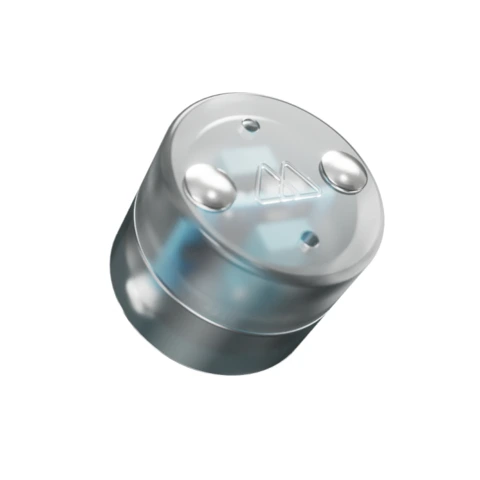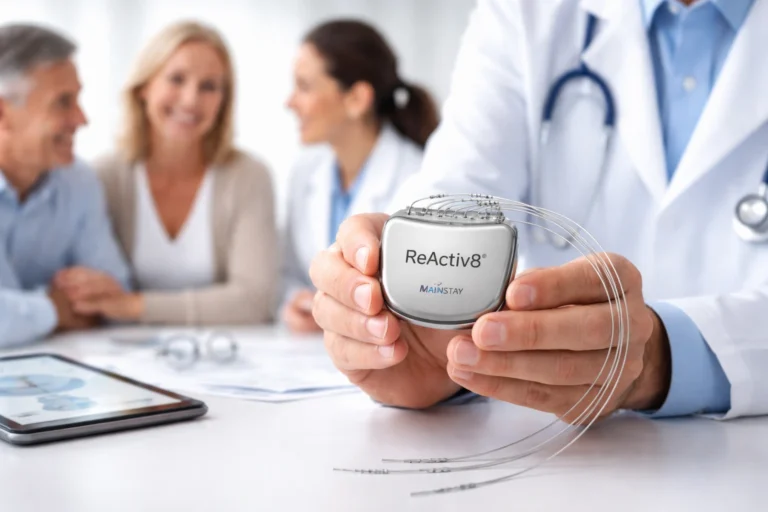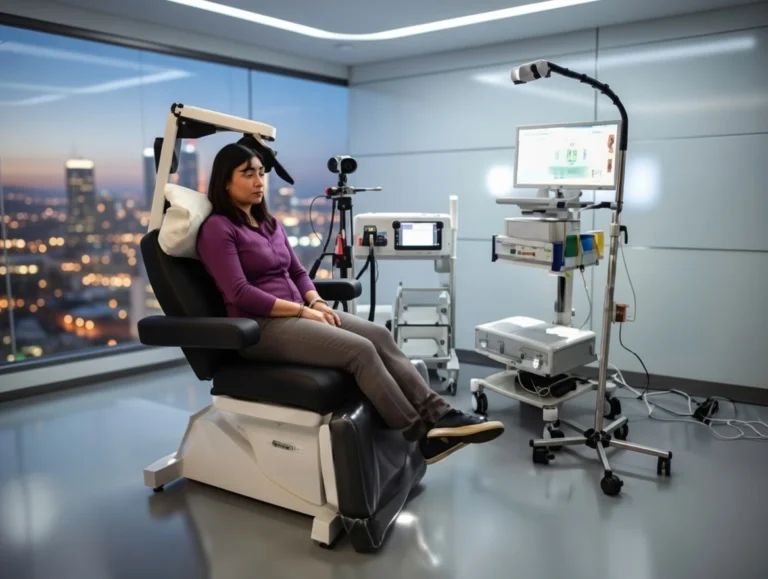
Brain-Computer Interface Development: Motif Neurotech Wins UK Award
Motif Neurotech, a neurotechnology company based in Houston, has been awarded a multimillion-dollar grant by the UK’s Advanced Research and Invention Agency (ARIA). The funding will support the company’s development of a therapeutic brain-computer interface (BCI) aimed at treating cognitive and psychiatric conditions. The award will facilitate the creation of a network of neural devices designed to monitor and regulate mental and cognitive states without the need for brain surgery. This grant is part of ARIA’s Precision Neurotechnologies program, overseen by program director Jacques Carolan.
Motif Neurotech, a neurotechnology company based in Houston, has received a significant multimillion-dollar award from the UK’s Advanced Research and Invention Agency (ARIA) to support its groundbreaking work in developing therapeutic brain-computer interface (BCI) technology. The funding will enable Motif Neurotech to advance the creation of a general-purpose platform capable of monitoring and regulating mental and cognitive states, a crucial step in treating a range of cognitive, neurological, and psychiatric conditions.

Jacob Robinson, CEO of Motif Neurotech, expressed his excitement about the award, noting, “We are thrilled to be part of this important program. This funding will allow us to accelerate our efforts to develop a platform that can accurately monitor and regulate mental and cognitive states. The brain is an electrical organ, and we believe mental and cognitive disorders will be best treated by interacting with the brain in its native language.”
The company’s vision is to improve treatment for conditions that impact mood, attention, and sleep by regulating brain states associated with these functions. The award will help make this technology more accessible to patients by focusing on simplifying the implantation process, making it quick, simple, and low risk. Additionally, the funding will support efforts to improve the specificity of brain stimulation by targeting specific cell types, potentially leading to more effective treatments with fewer side effects.
The BCI technology that Motif plans to develop will rely on a network of millimeter-sized wireless implants. These implants will be placed in the skull during a brief, 20-minute procedure and will be designed to be cosmetically invisible. Each implant will provide cell-type specific stimulation and electrical recording, enabling the regulation of brain-wide circuits without direct contact with the brain. The array of devices could cover the entire cortical surface, offering tailored treatments to meet the individual needs of each patient. This approach represents a significant leap forward in the potential for non-invasive neural interventions, addressing a variety of mental health and cognitive disorders.
To further advance this project, Motif Neurotech will collaborate with several research partners. One such partner is MintNeuro, a UK-based startup that will contribute to the development of custom integrated circuits designed to miniaturize the implants, making them more efficient and effective. Additionally, Kaiyuan Yang, an associate professor of Electrical and Computer Engineering at Rice University, will play a pivotal role in designing circuits that facilitate efficient wireless data transfer and power management.
The Robinson Lab at Rice University will provide support for system integration and testing, ensuring that the technology operates as intended. Valentin Dragoi, a renowned professor of Electrical and Computer Engineering at Rice, along with his leadership at Houston Methodist and Weill Cornell Medical College, will oversee preclinical animal studies to validate the safety and effectiveness of the system.
The ARIA award represents a major milestone for Motif Neurotech and is a strong endorsement of the company’s innovative approach to neurotechnology. This funding is not only a recognition of the company’s potential but also an essential step in helping Motif Neurotech fulfill its mission of creating neural devices that can improve the lives of people with mental and cognitive disorders.
Motif Neurotech is focused on developing miniature neural devices that allow individuals to regulate their mood, attention, and cognition. The company’s flagship product, the DOT, is currently in clinical development. DOT is designed to address treatment-resistant depression (TRD), a serious and often debilitating condition that affects millions of people in the US and tens of millions worldwide. Through its advanced BCI technology, Motif Neurotech aims to expand the potential of neural devices to treat a wide range of conditions, offering new hope for patients who have not responded to traditional therapies.
The Advanced Research and Invention Agency (ARIA) is an R&D funding body established to unlock groundbreaking technological advances for the benefit of society. Sponsored by the Department for Science, Innovation, and Technology, ARIA funds teams of scientists and engineers who are working on research at the forefront of what is scientifically and technologically possible. By supporting companies like Motif Neurotech, ARIA is helping to pave the way for transformative innovations that could change the landscape of healthcare, particularly in the realm of mental health and cognitive disorders.
This collaboration with ARIA marks a pivotal moment for Motif Neurotech as it continues to push the boundaries of what is possible in neurotechnology. With the support of this funding, the company is well-positioned to make meaningful advances in the development of therapeutic brain-computer interfaces that could revolutionize the treatment of cognitive and psychiatric conditions, offering improved outcomes and enhanced quality of life for patients around the world.




